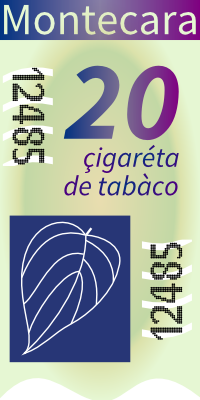User:Montecara/Sandbox 11
Taxation in Montecara is administered by the Secretariat of Finance.
Montecara is known as a tax haven and offshore financial hub thanks to its lack of income, capital gains, and estate taxes. The state does, however, assess a variety of other taxes and fees that contribute to its overall operating revenue.
Montecara operates a single-tier tax system; i.e., there is no dividend tax.
Direct taxes
Montecara does not assess a personal income tax or a capital gains tax.
Corporate income tax
Assessed on net profits of corporations, cooperatives, and other ventures. Resident companies are taxed on their worldwide income, except for profits derived from foreign branches and foreign immovable property, which are exempt. Nonresident companies are taxed on permanent establishment/branch income and/or immovable property located in Montecara. First Ł25,000 in profit earned domestically exempt.
| Category | Rate | Notes |
|---|---|---|
| Base rate | 13.5% | |
| Concessionary rate | 4.5% | Foundations, non-profit organizations, religious entities |
| Exempt | 0% | Registered charities |
Foreign worker tax
Transfer tax
Transfer tax is charged when certain types of property are sold, traded, or given away. Montecara charges a transfer tax on three categories of property: real property, meaning land and buildings; securities, which are mostly stocks and bonds; and cryptocurrency.
Montecara does not assess estate tax or gift tax.
| Category | Rate |
|---|---|
| Cryptocurrency | 0.50% |
| Real property | 1.125% |
| Securities | 0.015% |
Land value tax
Land value tax is assessed on the unimproved value of land.
Withholding tax
Withholding tax is assessed on income earned in Montecara by non-resident foreign workers (entertainers, athletes, etc.).
- General rate, 18%
Indirect taxes
Excises
Excises are per unit taxes paid on specific items when they are created or imported.
| Category | Rate |
|---|---|
| Transportation of persons by air | 5% of ticket price |
| Transportation of cargo by air | Ł16/tonne |
| Transportation of persons by water |
| Category | Rate |
|---|---|
| Beer or cider | |
| Spirits | |
| Wine |
| Category | Rate |
|---|---|
| Cannabis (dried plant matter) | Ł15/g |
| Cigarettes (pack of 20) | Ł12 |
| Cigar ≤ 10g | Ł7 |
| Cigar > 10g | Ł9 |
| Loose tobacco | Ł0.65/g |
| Category | Rate |
|---|---|
| Fishing equipment | 12% |
| Fluorinated gases | |
| Landfill waste | Ł80/tonne |
| Ozone-depleting substances | |
| Tires | |
| Category | Rate |
|---|---|
| Insurance | 4.75% of premium |
| Reinsurance | 1.25% of premium |
| Category | Rate |
|---|---|
| Diesel | Ł6.35/l |
| Kerosene for use in aviation | |
| Kerosene for other uses | Ł3.00/l |
| Gasoline | Ł5.75/l |
| Aviation gasoline | |
| Liquefied petroleum gas (LPG) | Ł1.90/l |
| Compressed natural gas (CNG) | |
| Liquefied hydrogen | |
| Liquid fuel derived from biomass | |
| Liquefied natural gas (LNG) | |
| Natural gas | Ł2.55/m³ |
| Heavy fuel oil | Ł2.85/l |
| Coal and coke | Ł15.50/Gj |
| Electricity | Ł22/MW·h |
| Category | Rate |
|---|---|
| Aircraft | |
| Passenger cars | |
| Ships |
Franchise tax
Mortgage tax
- 0.9% of each payment
Tariffs
Montecara is a free port and levies tariffs on only two line items: fresh fish at 3.5% and works of art at 6%. The overall weighted mean tariff rate is 0.0%. Receipts from tariffs totaled approximately Ł133 million (€26 million) in 2019.
Value-added tax
Surtaxes
- E-waste recycling surtax, 3%
- Public broadcasting surtax, 13%; Assessed on cable television, Internet service, and cellular data bills in order to fund Telèradio Montecara.
Discontinued
Straits tolls
Thanks to its strategic location in the Aurean Straits, Montecara was for centuries able to tax the ships and goods that traversed its littoral. Vessels refusing to stop and be taxed were summarily bombarded by the extensive network of coastal artillery. This was the major source of funding between the fourteenth and nineteenth centuries. Straits tolls ended with the Gaullican annexation and were not reinstated when Montecara regained independence.
Salt tax
Salt tax (Montecaran: gabèla) was first imposed under the Latin Republic, and was levied in some form up to the late 19th century. It was for many centuries up to the early modern era the single largest source of income for the Montecaran state, though it was often bitterly resented by common people. At times it even included the compulsory purchase of a fixed quantity of salt per month by every man, woman, and child in Montecara.
